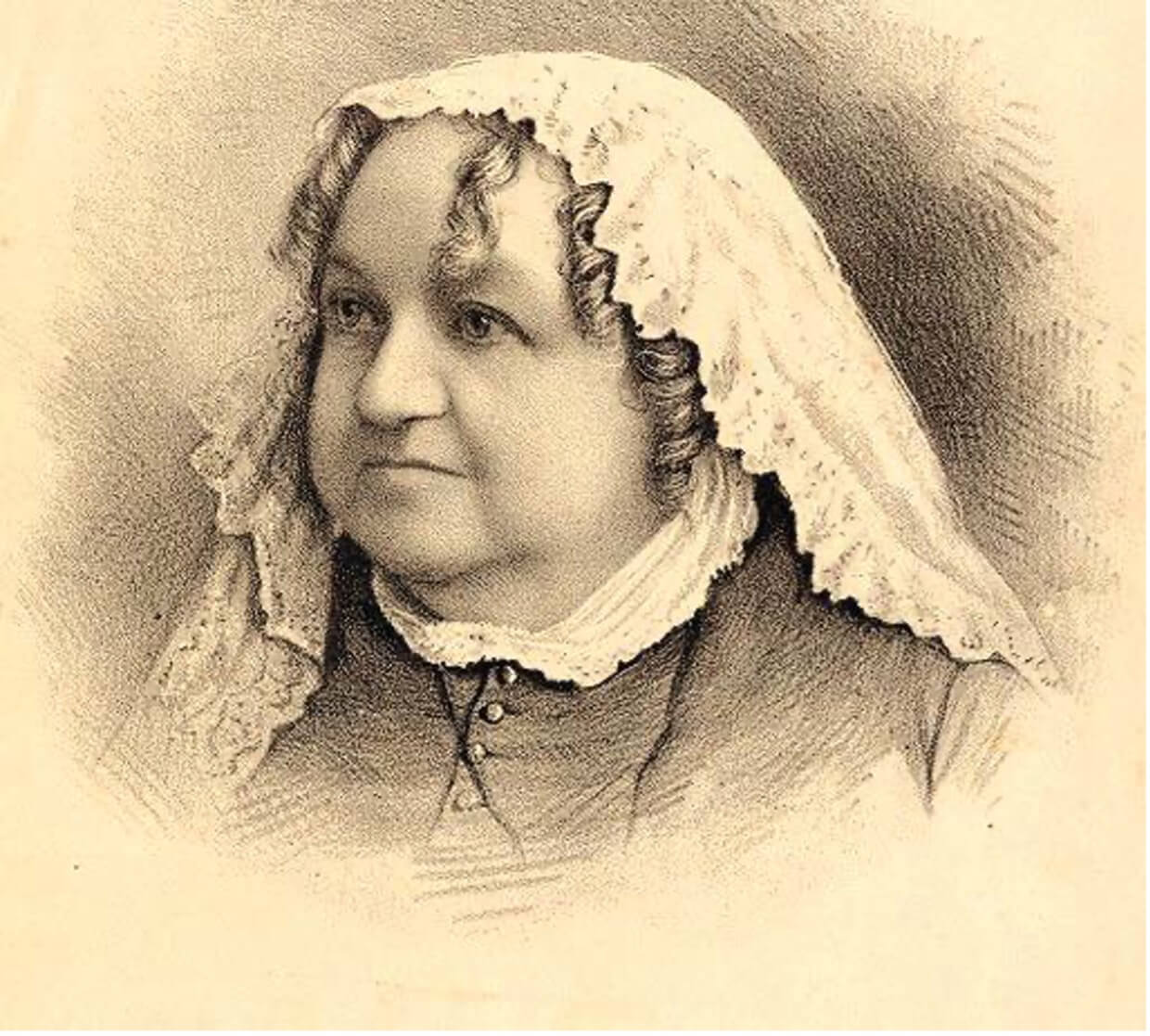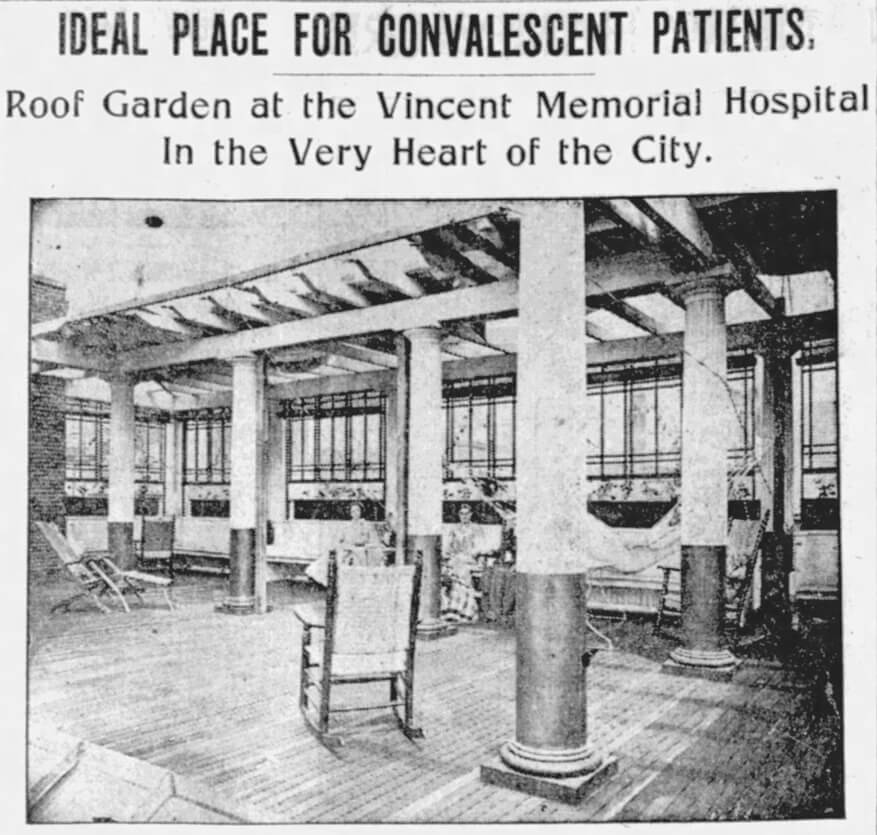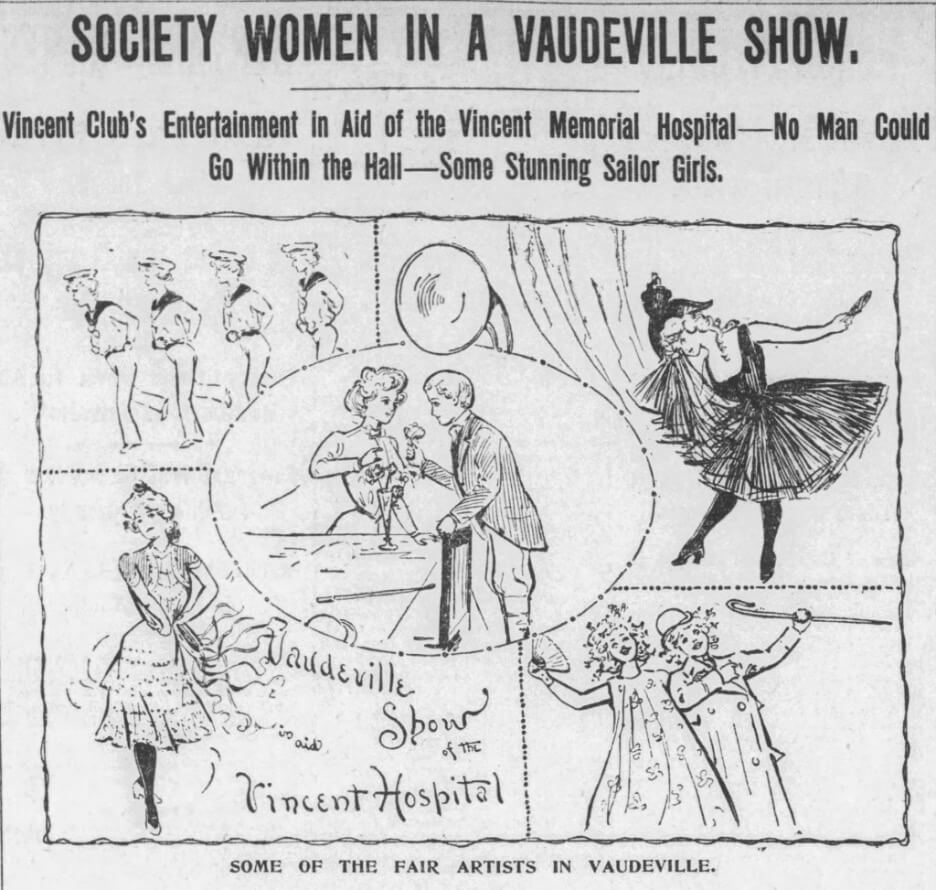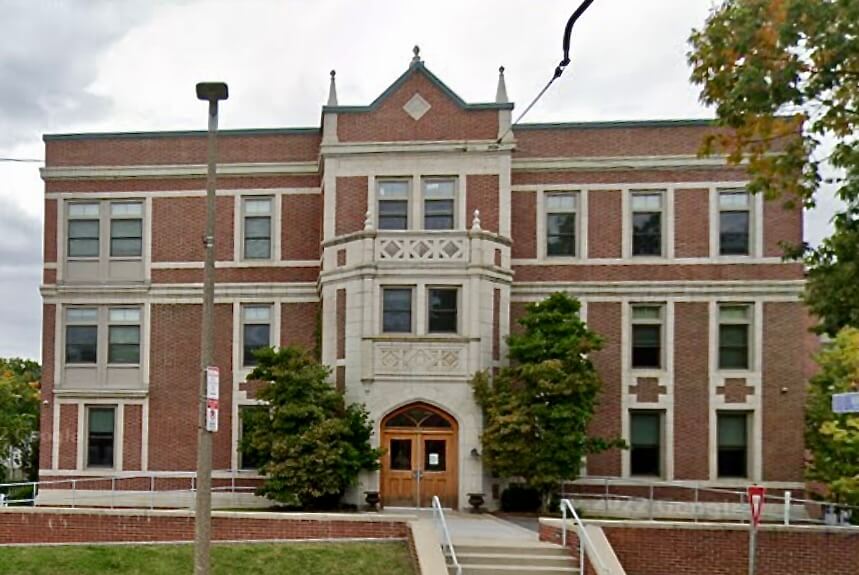The Legacy of Mary Ann Vincent
In the mid-19th century, Mary Ann Vincent, a popular English actress, arrived in the West End to expand her career. Her reputation for kindness and charity inspired those around her and blossomed into multiple institutions founded in her name, which to this day work to support women with access to advanced healthcare.
Mrs. Mary Ann Vincent (1818-1887) was an untrained but successful actress in England before arriving in Boston with her husband in 1846. Mary was invited to America by William Pelby, director of the National Theatre, located at the corner of Portland and Traverse Street in the West End. Despite the loss of her husband to suicide and the destruction of the National Theatre by fire in 1852, Mary remained in Boston for the rest of her life. She became a beloved actress in Boston, performing at the Howard Athenaeum and the Boston Museum, where she would perform regularly until her death by stroke shortly after a show in 1887. Inspired by Mary’s charitable work, which included working as a volunteer at a dispensary for the poor at Trinity Church in Boston, three of her friends donated $1000 each to open a hospital in her name.
The Vincent Memorial Hospital opened in 1891 and was dedicated to the treatment of wage-earning women and the overall advancement of women’s healthcare. The hospital was originally located on 44 Chambers St. in the West End and offered twelve patient beds. In the summer of 1902, a roof garden was added to the hospital, which was used as a lounge area with cushions and hammocks for patients to relax. Often, patients would enjoy their midday meals on the roof garden. In 1908, in order to accommodate more patients, the hospital moved to a new three-floor, brick and terracotta, facility on South Huntington Avenue in Jamaica Plain. The hospital’s first floor consisted of a reception room, sitting room, nurses’ dining room, and rooms for the night nurse, the housekeeper, and the servants. The second floor was mainly devoted to patients and a large sun parlor, and the third held the operating room, etherizing and sterilizing room, a doctor’s dressing room, and a roof garden. The kitchen and the laundry room could be found in the basement.
Part of the Vincent Memorial Hospital’s mission was to aid those who could not afford healthcare, and half of its patients received free treatments from the hospital made possible through donations. One prominent donor to the hospital was the Vincent Club, named for Mary and founded in 1892 by young women from Mrs. Shaw’s School for Girls in Boston. The organization’s mission was to treat the “diseases of women,” which it helped finance by hosting annual benefits where they staged theatrical performances. These performances were women-only, and consisted of tableaux, recitations, comedy, dancing, and more.
The Vincent Memorial Hospital returned to the West End in 1947, as part of a merger with the Massachusetts General Hospital (Mass General). Vincent Memorial continued to operate independently, while also it serving as the Mass General’s gynecology unit. Finally, in 1988, the Vincent Memorial Hospital ceased to exist as an independent hospital but maintained its core mission of supporting women’s health as the Vincent Memorial Hospital Foundation, Inc., and the Vincent Department of Obstetrics & Gynecology at Massachusetts General Hospital. Today, these two organizations, together with the Vincent Club, continue to support the education, research, and treatment of women’s diseases and health issues.
In 2019, more than two-hundred years after Mary’s birth, Boston’s Mayor Martin Walsh proclaimed September 18 of that year as Mary Ann Vincent Day, further memorializing her legacy. As an immigrant to the West End looking to increase her fortune, Mary Ann Vincent was undoubtedly successful, as proven by her documented success as a beloved stage actress. Yet her work in aiding those in need in her adopted community would outshine whatever success she saw on the stage. One could argue that the cheers of gratitude from the thousands of women receiving care provided for or funded by organizations in her name, would easily drown out the applause of all her adoring audiences.
Article by Queenie Chan, edited by Bob Potenza
Sources: Boston Globe (August 29, 1902, page 4); Boston Globe (January 08 1908, page 9); Boston Globe (April 28 1899, page 3); http://archive.org/details/notableamericanw03jame.; https://beaconhilltimes.com/2019/09/19/never-be-forgotten-mayor-proclaims-mary-ann-vincent-day-in-honor-of-famed-thespian-and-humanitarian/; https://thevincentclub.wildapricot.org/; https://vincentmemorial.org/;James, Edward T., Janet Wilson James, Paul S. Boyer, and Radcliffe College. 1971. Notable American Women, 1607-1950; a Biographical Dictionary. Cambridge, Mass., Belknap Press of Harvard University Press.











